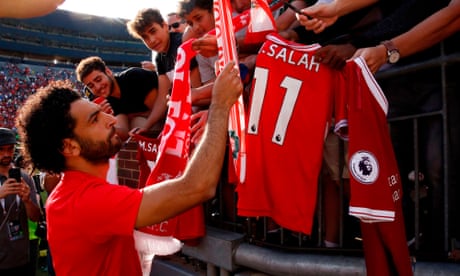
US owners were at the forefront of the push for the European Super League, even if they risked alienating fans on both sides of the Atlantic
As an American sports fan, I’ve enjoyed following the Premier League for the exact reason that it is not so American, with no playoffs or salary caps, no single trademarked Big Game of the Year, no buzzers (or guns) at the end of periods. Transfer windows and offsides took a while for me to figure out, but I am now all in. Or so I thought before this week.
I started following Tottenham Hotspur because it was a funny name for a sports team – at least to an American. Four years ago, I got tickets to a Premier League match between Spurs and host Crystal Palace at cramped, weather-worn Selhurst Park in south London. It was an experience unlike any NFL game, beginning with a train ride – no tailgating – with hundreds of other fans, already singing and drinking.
Palace and Spurs fans were separated by a moat of empty seats and a line of rent-a-cops, but the back-and-forth between the fans was hilarious and generally good-natured. Spurs won, 1-0, after a late, long-range effort that somehow skipped past the Palace keeper, but there was a pleasant, well-that-was-entertaining buzz in the streets back to the train station.
Then there was the third-round FA Cup match Spurs played earlier this year at tiny Marine FC, an eighth-tier club. Tottenham won comfortably, no surprise, but the best photo from the game was of Covid-restricted fans sipping wine while watching the match from their backyards.
Related: Abramovich is billed saviour of people’s game: but Super League fight isn’t over




